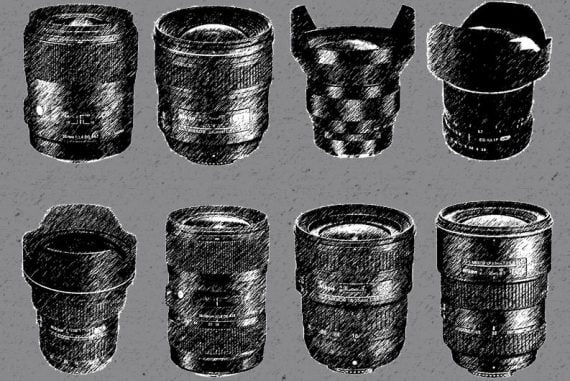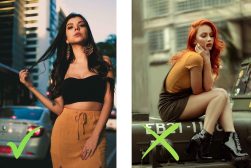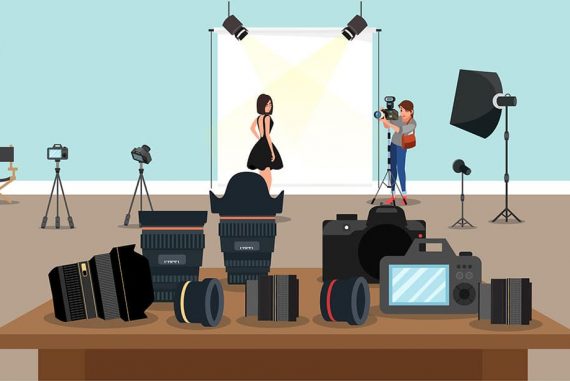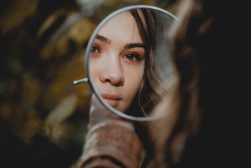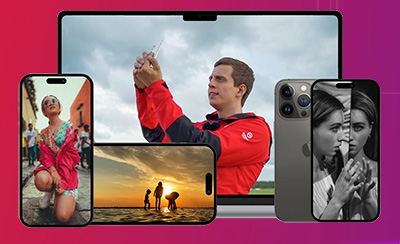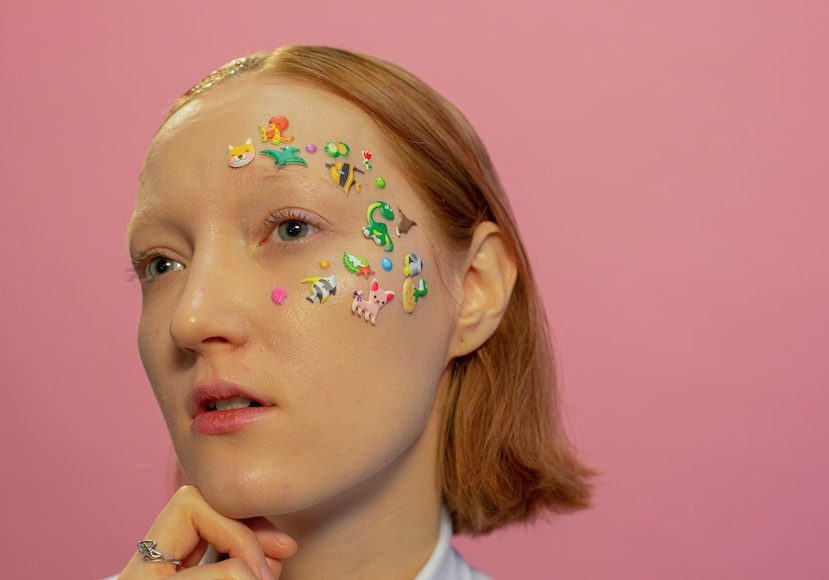
Does the Camera Add Weight? Debunking The 10 Pound Myth
Uncover the truth behind the age-old belief, "Does the camera add weight?" as we debunk the 10-pound myth and reveal the real factors at play.
Learn | By India Mantle
Does the camera add weight, or is it just a myth?
You must know that feeling; you’re well dressed, hair done, and feeling confident in your new outfit.
But when someone whips out the camera for a group photo, the insecurity kicks in, and you start asking yourself, do cameras really add 10 pounds like they say?
The truth is that cameras can distort our perception of size and weight in photos. While cameras don’t actually add weight, sometimes they make us appear larger or even thinner. How? That depends on many factors.
In this guide, I’ll show you how the camera can make you appear larger. I’ll also mention some basic techniques to minimize the camera’s impact on your size and weight.
Table of Contents
Do Cameras Really Add Weight? | The 10 Pounds Myth
You’ve probably heard that phrase from Friends when Monica said to Chandler, “Cameras add 10 pounds”.
While this sounds like a cliche, it’s rooted in some reality among professional photographers.
It’s all about how cameras see the world compared to our eyes. Let’s explain this further.
Cameras are one-eyed; they see the world through one lens.
Meanwhile, we have two eyes that work simultaneously to give us a perception of depth; in other words, we can see a bit more behind things.
On top of that, our brain works some cool magic; it blends the two images we see together to form a 3D picture.
But cameras? They only have one lens, so they can’t see around and behind the objects like we do.
So why might your brain think a face in a photo or video is wider than in real life?
It’s because, in pictures, the face covers more of what’s behind it, which isn’t the same case in real life.
Another reason people believe that cameras add weight is because their mirror reflection and camera image are different.
When you see your face up close to the mirror, your nose is usually a few centimeters closer, and your eyes are a few centimeters back, creating a sense of depth.
A few centimeters make a huge difference and make your face appear slightly thinner and longer.
When a camera captures your face, it isn’t the same case.
That’s because cameras are usually much further away, so the depth cues are lost, making your face appear wider or flatter.
- See also: Is the mirror or camera more accurate?
The Focal Length
Every camera has something called “focal length,” which plays a significant role in how your photos turn out. The focal length is determined when the lens is focused at infinity.
It’s a way to determine the angle of view, which is how much of the scene is captured.
Additionally, the focal length helps determine the magnification, which controls how large individual elements will appear.
So imagine your camera’s lens as a funnel guiding light to a specific point inside the camera.
The distance from this point to the camera lens is the focal length, usually measured in millimeters.
Wide-angle lenses have short focal lengths, which means you’ll get a wider view using them.
So, the near objects will appear wider, and the far elements look much smaller.
Conversely, with a large focal length, like in a telephoto lens, you aim to take photos of far-away objects or focus on smaller details in a scene.
When the camera is zoomed in, faces usually appear flatter or stretched, making us feel that we look fatter.
How Does the Camera Add Weight
Have you ever wondered how you don’t look the same in all your pictures? Sometimes, you look wider or thinner than your actual body size.
That’s because many factors affect how much the camera distorts your body figure.
1. Lens Distortion
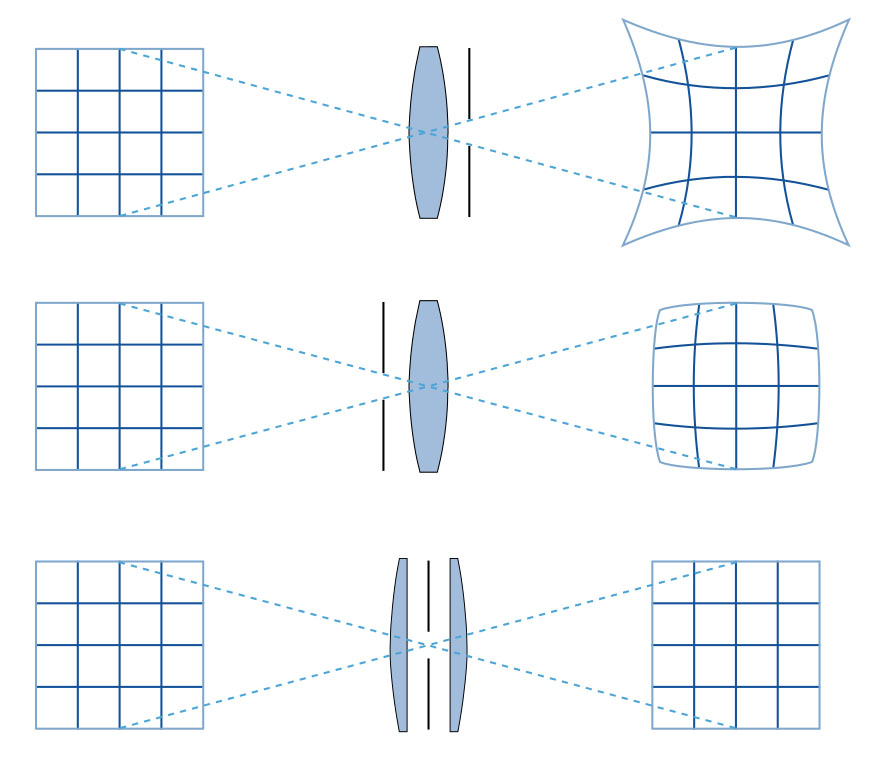
Credit: Nicoguaro, CC BY-SA 3.0, via Wikimedia Commons
Lens distortion is probably the most common reason people appear wider in photos. As we mentioned, every lens has its focal length. There are endless lenses on the market, each with a unique name that describes its purpose and type of photography.
For example, most outdoor portrait lenses have a focal length of around 85mm.
This focal length is suitable for outdoor portrait photography as it doesn’t distort the subject’s facial features. If you choose a lens with a focal length of 70-200mm for the same purpose, your face will look way fatter.
So, generally speaking, wide-angle lenses make close-up subjects look much larger towards the edge of the frame.
The effect is exaggerated the closer the subject gets to the camera.
If you want to look leaner in photos, opt for telephoto lenses. They have longer focal lengths and can make objects appear a lot smaller than they are in real life.
2. Lighting
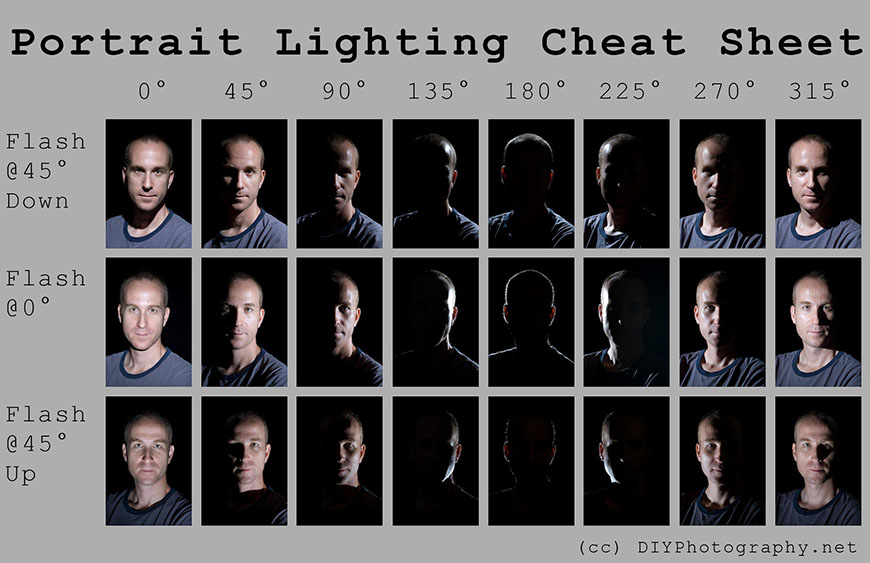
Credit: Udi Tirosh, CC BY-NC 2.0 DEED, via Flickr.
How the light hits people in photos can alter certain aspects of their physique and make them thinner or fatter. For example, soft, diffused light doesn’t create harsh shadows that accentuate flaws.
On the other hand, harsh direct lighting can cast unflattering shadows that unveil all your body features, including any perceived extra weight.
3. Angle
The angle at which you’re shooting can significantly affect how fat or thin you look in the photo. You’ve probably experimented with this yourself while taking selfies.
Your face and neck usually appear fuller when shooting from below eye level. In contrast, taking photos from an overhead angle has a slimming effect.
However, placing the camera at a lower level can make you appear much slimmer and taller when taking portraits or full-body shots. Note that the angle isn’t only about where you place the camera but also how you pose.
- See also: Posing Tips to Look Thinner in Pictures
FAQs
Does the iPhone camera add weight?
Cameras don’t add weight themselves, but phone lenses can distort how we look in images.
The iPhone camera lens can distort too. If you take pictures from the wrong angles with direct lighting, you might look a few pounds heavier than usual.
Do clothes affect how you look in photos?
Yes, they do. No matter what your height, weight, or size, some clothes can make you look bigger than you are.
For example, t-shirts with horizontal stripes and baggy pants can make you appear wider. On the other hand, wearing dark colors such as monochromes, blacks, and blues can make you look slightly leaner.
Why do I look fatter in pictures than in the mirror?
Most phone cameras are wide-angle and have short lenses, so they can result in distorted photos, making you look wider than you are.
Additionally, various factors can make you look fatter or slimmer in pictures than in the mirror. That includes angle, clothes, lightning, posture, lens width, and focusing length.
As the Content Manager of Shotkit, India Mantle brings with her a lifelong love for photography that she developed during her childhood, watching her father document their family moments with his Nikon EM. In her free time, you find her enjoying the awe-inspiring natural beauty of her home, Northern Rivers, Australia.







